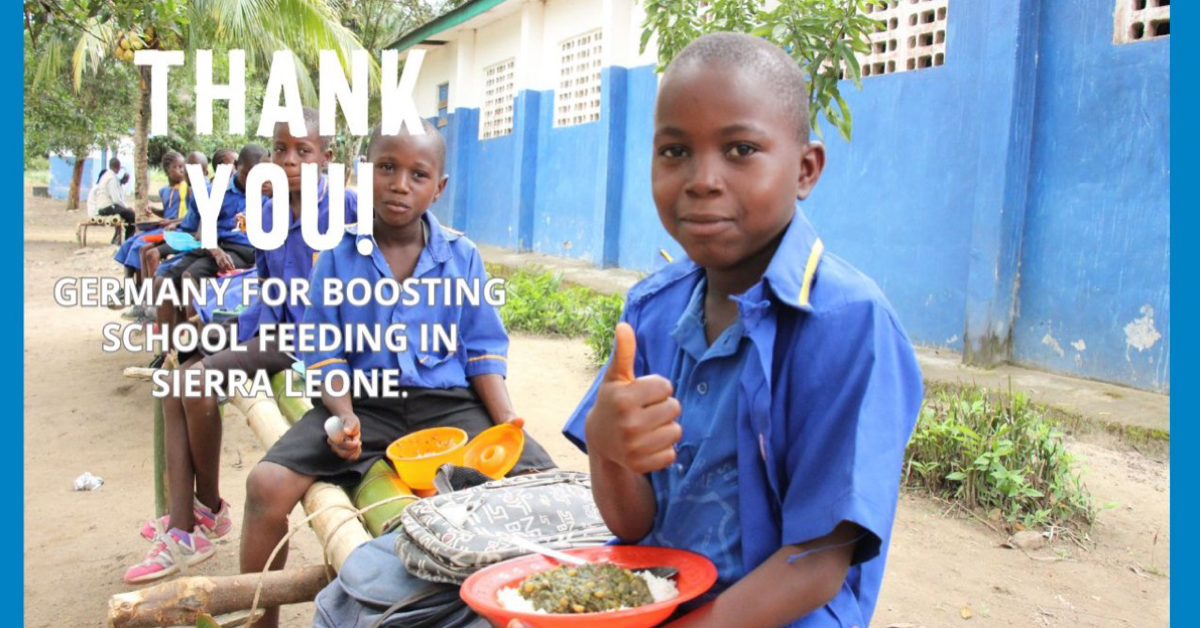Towards enhancing food security and nutrition in Sierra Leone, the Federal Republic of Germany, through its Federal Ministry for Economic Cooperation and Development (BMZ), has allocated EUR 10 million to the United Nations World Food Programme (WFP). This funding aims to provide nutritious meals to 25,300 primary school children in the Karene district of northern Sierra Leone.
The generous contribution from Germany will enable WFP to implement a home-grown school meals program, delivering safe, diverse, and nutritious meals to pre and primary school children across 115 schools from 2024 to 2028. Local food production will be a cornerstone of this initiative, with 8,000 smallholder farmers being sourced to supply the necessary ingredients.
The German-funded program is not merely about feeding children but seeks to bolster local food production, create demand for nutritious food, stimulate the local economy, and strengthen food systems. Through partnerships with smallholder farmers, the project aims to transform the local food systems, particularly benefiting women in agricultural communities.
Sierra Leone, where WFP is currently providing school meals to 238,000 pupils in five districts, will witness a substantial expansion of the home-grown school feeding program. With the new contribution, coverage is set to increase to 53,000 pupils in early 2024, marking a commendable 22 percent rise from the current coverage.
German Ambassador Jens Kraus-Massé emphasized the commitment of Germany to improving food security in Sierra Leone, aligning with the Government’s ‘Feed Salone’ initiative. The project is envisioned not only as a means of addressing immediate nutritional needs but also as a catalyst for broader social and economic development.
Conrad Sackey, Minister of Basic and Senior Secondary Education, expressed gratitude for the timely funding, noting its potential to contribute to a successful implementation of the home-grown school feeding program and align with the President’s human capital development vision.
The Government of Sierra Leone has prioritized home-grown school feeding as a pivotal element of its National School Feeding Policy. This approach places a significant emphasis on the multifaceted nature of school feeding, intertwining it with local food production and procurement. The interconnectedness of these activities holds the promise of inducing social and economic development within communities.
WFP’s Representative and Country Director in Sierra Leone, Yvonne Forsen, commended the Republic of Germany for its commitment to improving the lives of vulnerable populations in Sierra Leone. Forsen reiterated WFP’s dedication to collaborating with partners to enhance food security, nutrition, human capital development, livelihoods, and the local economy.
Notably, the German funding will also contribute to addressing the global climate crisis. Part of the allocated funds will be utilized to construct environmentally friendly kitchens and storerooms. Additionally, fuel-efficient stoves will be provided to reduce the reliance on firewood, aligning with Sierra Leone’s efforts to combat climate change.
Germany’s EUR 10 million contribution to WFP signifies a substantial investment in the well-being and future of Sierra Leonean children. By intertwining local agriculture, nutrition, and economic development, the project sets a commendable example of how international partnerships can drive positive change at the grassroots level.











